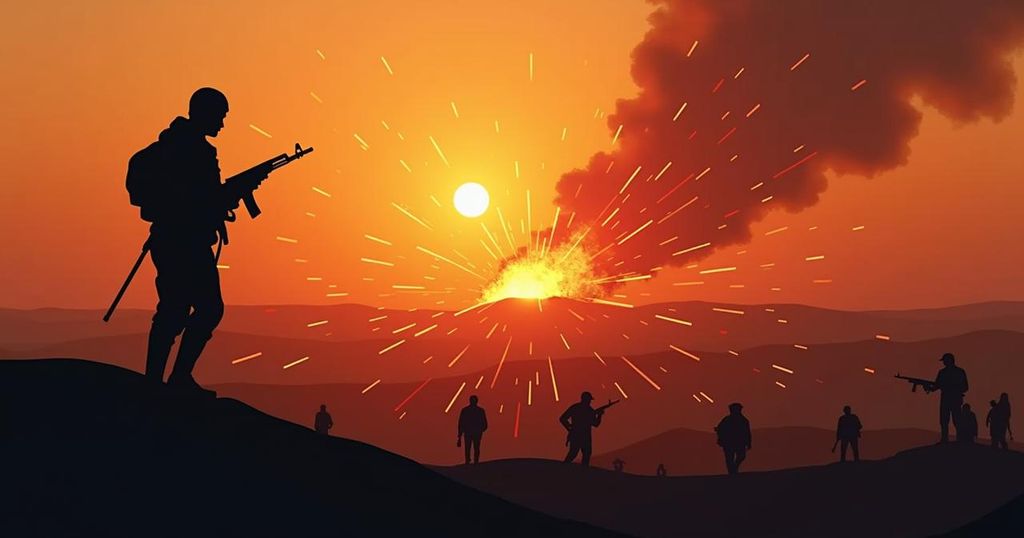The assassination of Hassan Nasrallah raises the specter of increased conflict in the Middle East, with significant implications for Iranian and Israeli relations. Despite urgent calls for de-escalation from the United States and allies, the situation remains perilous as regional dynamics continue to evolve. Iran’s potential response is complicated by its current vulnerabilities, suggesting a cautious approach may prevail. Meanwhile, the unfolding situation in Lebanon poses additional risks to regional stability.
The assassination of Hassan Nasrallah, the leader of Hezbollah, by Israeli forces poses significant threats of escalating tensions throughout the Middle East. With potential repercussions echoing in Iran and among regional allies, the significant implications of this event usher in questions concerning stability within the area. As the situation unfolds, the United States and its allies are under increasing pressure to deploy diplomatic initiatives aimed at de-escalation and mitigating the impending conflict. Nevertheless, they face challenges from both Israeli actions and Iranian responses, which may provoke wider hostilities. The recent events highlight a perilous period where regional powers may react unpredictably, amidst already volatile geopolitical conditions. The overarching sentiment suggests that while immediate chaos is expected, a comprehensive regional war is not predetermined. Iran’s possible hesitation stems from its current vulnerabilities, which include economic sanctions and domestic unrest, suggesting it may opt for caution rather than confrontation. The ongoing and tenuous situation in Lebanon adds to the uncertainty, where the political equilibrium could be severely disrupted by Nasrallah’s death.
The article discusses the geopolitical complexities in the Middle East following the assassination of Hassan Nasrallah, a key figure within Hezbollah, a group classified as a terrorist organization by several Western nations. This event raises critical questions about the regional stability, particularly with Iran’s potential reactions and the implications for US foreign policy in the area. Previous diplomacy efforts led by the United States to reduce tensions in the region have faced significant obstacles, raising concerns of an imminent broader conflict. As Israel possibly prepares for military action in Lebanon, the underlying geopolitical dynamics further complicate the scenario, particularly regarding Lebanon’s fragile political status and implications for Iranian strategy.
In conclusion, while the assassination of Hassan Nasrallah has escalated tensions within the Middle East, a wider conflict may not be inevitable. Diplomatic efforts led by the United States and other powers are crucial at this juncture to mitigate further escalation. However, regional actors such as Iran and Israel must navigate their responses delicately, balancing the risks of conflict against their own strategic imperatives. The fragility of Lebanon’s political landscape may also factor significantly into future developments, necessitating close observation in the coming days and weeks.
Original Source: news.sky.com






